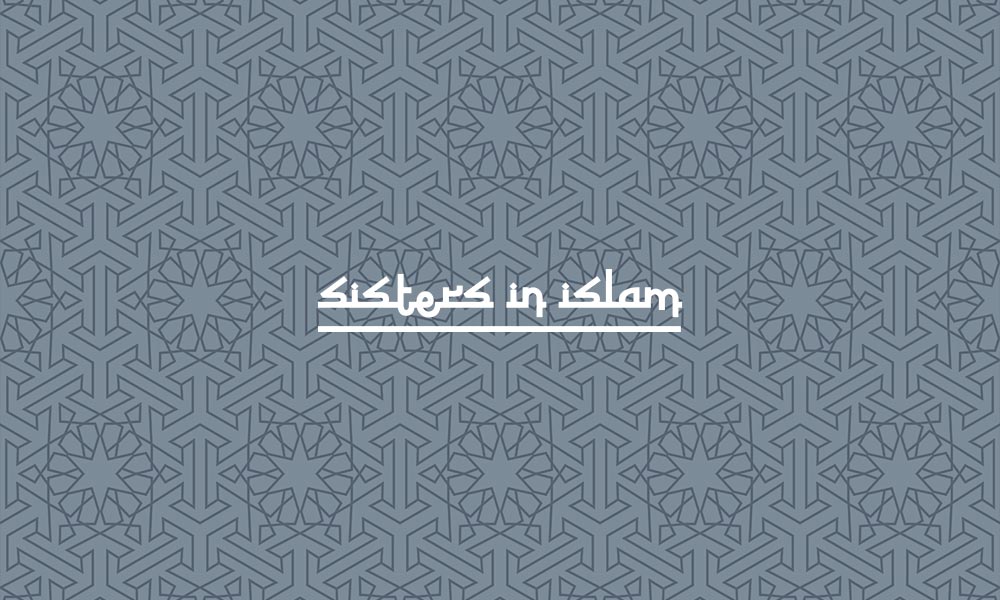This statement is in response to the Taliban regime’s order to stop women from working for Non-Governmental Organisations (NGOs) in Afghanistan as reported in The Guardian. Headline: “Taliban stop women from working for aid organisations” (Link: https://www.theguardian.com/world/2022/dec/24/taliban-stop-women-from-working-for-aid-organisations)
Sisters in Islam (SIS), together with the undersigned organisations and individuals are appalled and vehemently reject the Taliban regime’s order to stop women from working at all local and foreign non-governmental organisations (NGOs) in Afghanistan. This recent order is horrifying and cruel especially a week before, women were banned from attending universities.
After 20 years of benefitting women’s rights in Afghanistan such as the freedom of movement, education and basic health rights, Afghan women are now, again, stripped of their basic human rights to freedom, education, health and currently, their basic right to employment. Since the Taliban’s takeover in August 2021, women and girls are at the centerfold of abuse and violations as the Taliban continues to impose preposterous restrictions towards them.
The recent ban of not allowing women to work at non-governmental organisations (NGOs) not only violates thousands of women’s rights to employment but also, mainly violates women and girls’ rights to proper health care. Some of the issues are:
- Restrictions for women and girls to receive proper health care services.
Since many of the NGO employees are women, the imposition of the ban will limit the people of Afghanistan’s access to proper health care services considering the majority of the population in Afghanistan rely heavily on humanitarian aid. Services that affect women and children in particular include, health care nutrition programmes, programmes for breastfeeding mothers, etc. Furthermore, since the general female population in Afghanistan feels more comfortable speaking with another female regarding their health issues and concerns, the limitation of female employees’ numbers in NGOs will definitely curtail their ability to voice out their health issues hence, putting them in a more vulnerable position.
The Taliban takeover has also re-imposed the enforcement for women to leave home with their “mahram” (a family member who is forbidden to marry such as a woman’s father and brother. Husbands are also considered as mahram) and this will further reduce and restrict women and girls’ access to proper health care services.
- Limitations in designing a proper response related to health care services, education, etc.
The lack of female representation and their participation in projects related to the critical issues faced by the Afghans, especially Afghan women and girls such as focus group discussions, needs assessment, on the ground assessment, etc will affect the design responses that could be vital for their well-being.
- Gaps in the design of programmes that focus on female headed households.
The absence of women working in non-governmental organisations (NGOs) will affect the development of numerous programmes for women and girls. It will cause huge gaps in the design of these programmes such as those that focus on female headed households whose husbands passed away due to the years of conflict in Afghanistan.
Therefore, we, the undersigned, would like to further reiterate our objection and rejection of the recent ban on employment of women in non-governmental organisations (NGOs). Women’s right to work must be respected and accepted as a human right. We also further urge everyone to stand together and support all Afghans to obtain their rights to work and live free from discrimination and violence.
Endorsements:
Organisations:
- Agora Society Malaysia
- ALIRAN
- All Women’s Action Society (AWAM)
- Asian-Pacific Resource and Research Centre for Women (ARROW)
- Association of Women Lawyers (AWL)
- Centre for Independent Journalism (CIJ)
- ENGENDER Consultancy
- GERAK (Pergerakan Tenaga Akademik Malaysia)
- Girls For Girls International
- Green Lifestyle Association (GLA)
- Health Equity Initiatives
- Iclif Executive Education
- IMAN Research
- Justice for Sisters
- Komuniti Muslim Universal
- KRYSS Network
- Mahasiswa Keadilan Malaysia
- Malaysian Action for Justice and Unity (MAJU)
- Malaysian Association of Youth Clubs
- Malaysian Women’s Action for Tobacco Control and Health (MyWATCH)
- Mekar Kami
- Musawah
- Peduli Merah
- Penang Women’s Development Corporation (PWDC)
- Persatuan Promosi Hak Asasi Manusia (PROHAM)
- Pertubuhan Generasi Aspirasi Pemimpin Wanita Malaysia (GAP.MY)
- Pertubuhan Rangkaian Pembangunan Kesinambungan Malaysia (SUSDEN Malaysia)
- Reproductive Health Association of Kelantan (ReHAK)
- Sabah Women’s Action-Resource Group (SAWO)
- Salt Media Sdn Bhd
- Sisters in Islam (SIS)
- Strategic Advocacy for Human Rights
- Suara Rakyat Malaysia (SUARAM)
- Successful Management Consultancy
- Tenaganita
- UKM
- Universiti Putra Malaysia (UPM)
- Voice of Youtharian
- Women For Refugees
- G25
Individuals:
- Alice Tan (Health Equity Initiatives)
- Ann Sidhu
- Anwar Fazal
- Dina Zaman (Iman Research)
- Dr. Rashidah Shuib (Reproductive Health Association of Kelantan)
- Dr. Lyana Khairuddin
- Fatimah Abu Bakar (Sisters in Islam)
- Fatimah Merican (Sisters in Islam)
- Hamidah Marican (Sisters in Islam)
- Ivy Josiah
- Lai Wan Teng
- Lily Ghazali (Health Equity Initiatives)
- Maria Chin Abdullah
- Marina Mahathir (Sisters in Islam)
- Mary Assunta (Health Equity Initiatives)
- Masjaliza Hamzah
- Noorjehan binti Kamarudin
- Rose Ismail (Sisters in Islam)
- Shariza kamarudin
- Sharuna Verghis (Health Equity Initiatives)
- Siti Hawa Ali (Reproductive Health Association of Kelantan)
- Siti Kassim (Malaysian Action for Justice and Unity)
- Siti Waringin (Reproductive Health Association of Kelantan)
- Vanitha Ponnusamy
- Zainah Anwar (Musawah)
- Zharin Zhafrael (Musawah)
